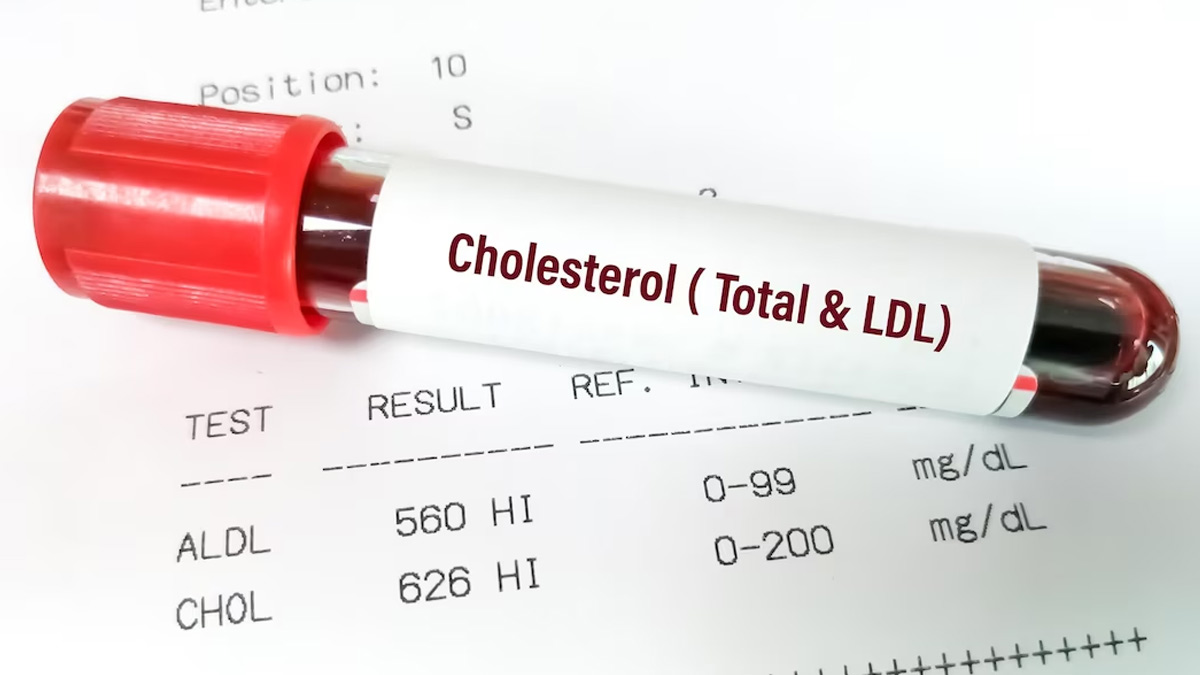
To obtain accurate results, certain medical tests require people to fast. Fasting typically involves abstaining from food and beverages, except for water, for a specific period of time prior to the tests. It basically helps eliminate the influence of recent food intake on test results and ensures that baseline levels are captured effectively. While fasting is a key requirement to check for accurate blood sugar levels, Dr Sushrut Pownikar, Head Of Quality Assurance and Deputy Director, Oncquest Laboratories, answers whether it is also necessary before a cholesterol or lipid test. Here's what you need to know.
Table of Content:-
Also Read: Are You Taking Statins For Cholesterol Management? Here Are Mistakes You Should Avoid
How To Get Your Cholesterol Tested?

“Cholesterol testing is typically done through a blood sample,” said Dr Pownikar. Explaining the procedure, he said, “A healthcare professional will draw blood from the person’s vein, usually from the arm. The sample is then analysed in a laboratory to measure various cholesterol components.”
The cholesterol test checks your Low-density lipoprotein (LDL) or “bad” cholesterol levels. High levels of LDL cholesterol can usually lead to plaque buildup in the arteries, resulting in heart disease or stroke.
Do You Need To Fast Before A Lipid Test?
According to the doctor, fasting before a cholesterol test is often required. He said, “As a path laboratory, we emphasise on the importance of fasting before a cholesterol test as this ensures accurate measurements of lipids, such as total cholesterol, LDL cholesterol, and triglycerides.”
“We recommend fasting for 9 to 12 hours to obtain reliable results. If any individual is taking cholesterol-lowering medications like statins, please inform your healthcare provider or the path lab, as they can influence lipid levels. I would suggest people to consult a medical practitioner before altering your medication routine,” he added.
Also Read: Living With Hypertension? Here Are Foods That Can Instantly Raise Blood Pressure
Does Taking Statins Make A Difference?

The doctor urges you to inform your healthcare provider or the laboratory, if you take statins or any other cholesterol-lowering medications. “As statins can affect lipid levels, healthcare professionals may advise you on whether to temporarily discontinue the medication before the test. However, it's essential to consult a doctor before making any changes to your medication routine,” he advised.
How Long Before A Cholesterol Test Should You Fast?

For most lipid tests, including cholesterol tests, fasting for 9-12 hours is recommended; which means the individual should avoid eating or drinking anything except water during that period. This is one of the reasons why most tests are scheduled in the morning. However, it's important to follow the specific instructions provided by the healthcare provider or the laboratory where the test will be conducted, as requirements may vary.
How To Prepare For A Cholesterol Test?
“To prepare for a cholesterol test, a person should follow the fasting instructions provided. This means avoiding food and drinks (except water) for the recommended period. It's advisable to inform one’s healthcare provider about any medications, including statins, that you are taking. Additionally, avoid excessive alcohol consumption and strenuous exercise before the test, as they can temporarily affect lipid levels,” Dr Pownikar advised.
Also watch this video
How we keep this article up to date:
We work with experts and keep a close eye on the latest in health and wellness. Whenever there is a new research or helpful information, we update our articles with accurate and useful advice.
Current Version